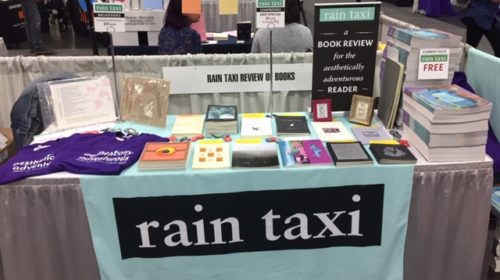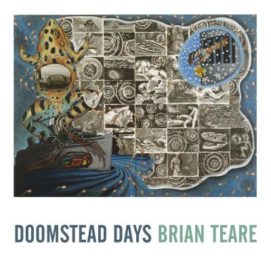 interviewed by bart plantenga
interviewed by bart plantenga
I was always the con man without a clue,
. . . . . . . . . . . . . . . . . . . .
the poet who hated poetry and poets and pretty much everything
else as well.
—Jose Padua, “New York,”
 A Short History of Monsters (University of Arkansas Press, $17.95) explodes like a cluster bomb of hilarious, acerbic, menacing, satirical, clear-eyed, and self-effacing poetry that uncomfortably lays bare Washington, DC poet Jose Padua’s experiences growing up as a Filipino in a white world and an outsider-bohemian in an overly ambitious culture where Asians are herded “naturally” toward the sciences and away from the arts. He casts a harsh, black-humorist light on our hypocrisies, foibles, and missteps, while still managing an oddly generous manifesto that incites chuckle-groans usually associated with authors like Céline, Baudelaire, or Bukowski. “The monsters,” as Padua points out, “are corporate America, warmongers, cheap cultural trends, overindulgence, addiction, and, of course, me. I’m a monster beast too.” Monsters covers the period from the early 1980s to the late 1990s and was compiled long ago, with the manuscript subsequently floating around in a no-fly zone for some twenty years before finding a sympathetic publisher.
A Short History of Monsters (University of Arkansas Press, $17.95) explodes like a cluster bomb of hilarious, acerbic, menacing, satirical, clear-eyed, and self-effacing poetry that uncomfortably lays bare Washington, DC poet Jose Padua’s experiences growing up as a Filipino in a white world and an outsider-bohemian in an overly ambitious culture where Asians are herded “naturally” toward the sciences and away from the arts. He casts a harsh, black-humorist light on our hypocrisies, foibles, and missteps, while still managing an oddly generous manifesto that incites chuckle-groans usually associated with authors like Céline, Baudelaire, or Bukowski. “The monsters,” as Padua points out, “are corporate America, warmongers, cheap cultural trends, overindulgence, addiction, and, of course, me. I’m a monster beast too.” Monsters covers the period from the early 1980s to the late 1990s and was compiled long ago, with the manuscript subsequently floating around in a no-fly zone for some twenty years before finding a sympathetic publisher.
bart plantenga: Would you describe yourself as an autodidact? Someone who constructs verse and lines in direct reaction to what you’re experiencing?
Jose Padua: Although I was an English major in college, I never took any creative writing classes. One time I did speak to one of my professors about writing poetry, and she gave me some tips. A couple of years after college, I applied to a poetry workshop conducted by an established poet, Rika Lesser, but I wasn’t accepted. That was the last time I ever tried to get any poetry instruction. Still, there was one workshop I did take, conducted by my friend Jeff McDaniel. I didn’t have to apply and I only took it because Jeff was running it (so I knew it’d be fun) and because a friend of mine who was also a poet, Heather Davis (who later became my wife), was taking it.
bp: I took some creative writing at U of Michigan, and, encouraged by others, I did apply twice to writing retreat places. It was like I was writing to Mars. I didn’t get in. I’m reminded of this Robert Coover quotation from a 1987 interview he gave: "The proliferation of writing programs has been something of a disaster, a kind of parasitic growth on the college curriculum, once thought benign, now visibly threatening to universities and literature alike . . . literature is losing its variety, its distinctive voices. Divine madness does not go over in a workshop.”
JP: Yeah, I could see getting into a writers’ retreat and just staring out the window at the scenery or at the other writers and getting nothing done. That kind of retreat from the world doesn’t appeal to me—it’s certainly not the sort of thing that would help my work. I think part of why I wrote so much in Front Royal, VA was precisely because I was plopped into the middle of what for me was an alien, uncomfortable place.
I first started writing in grade school. It was a story about a magic stove. I guess I liked to eat and I still do, obviously. College was when I started writing poetry. As I got older, writing became my way of understanding the world, in particular an America where I was a minority/misfit/eccentric. At first it was perhaps a defense against all the attitudes and institutions and systems that deemed me an outsider. Not until later did I take it as a means of celebrating being an outsider. Besides, what always appealed to me about writing was that it was an art I could do alone.
bp: Me too. It’s discreet—pen in one pocket, a notepad in another, and you’re set. Although I am jealous of musicians. Pull out your instrument and in no time you’re communicating with complete strangers . . .
JP: I get jealous of musicians too—how they can put it all out there and see the high people are getting from their art.
bp: Who is your favorite musician?
JP: The most transcendent live performances I ever saw were by Sun Ra and his Arkestra. I’ve gone to his shows feeling sick and depressed and came out feeling healed. And he wasn’t some tall, handsome, glamorous looking guy—he looked like some regular guy you’d see sitting next to you waiting for the bus.
bp: It’s like Sun Ra was responding to four voices at once. I think what musicians reach is often a different, loftier high Poets who engage in chant and repetition can sometimes get you there.
JP: Poetry audiences never seem to head bang or dance while someone’s reading and, of course, if they did, one would go: “What the fuck is wrong with them?”
I remember right after high school I tried to make a film with some friends of mine. I found working with other people problematic, and I started to hate these people, even though they were my friends. Luckily, they started to hate me too. Then, as it happened, the person who was developing the film lost half of what we’d shot. He tried to fool me by giving me back the same number of rolls I’d shot, but when I started looking at them I saw he’d included rolls that had nothing to do with the movie—reels shot when he was a kid, riding on a rollercoaster, that kind of shit. I hate rollercoasters. Anyway, we never finished the film. I went back to writing.
bp: I like the idea of film, but collaboration is so difficult. What movies have inspired you?
JP: One I go back to time and again is Wim Wenders’s Kings of the Road.
bp: I love that film! It’s been showing on my brain screen for years. Definitely in my All-Time Top 10.
JP: It’s slow, in black-and-white, doesn’t really have a plot, and the only action is what’s going on in the two main characters’ heads—their moods, memories, thoughts. Watching it is like being alive in their world and being fascinated by it. I find it so much more compelling than any superhero movie. Though I can enjoy a Spider-Man film or something similar, what stays with me are films like Kings of the Road, Chris Marker’s Sans Soleil, Wong Kar Wai’s Fallen Angels.
bp: So you grew up in DC, a white place full of shakers and takers, with its other side of the street where the poor, those discarded by the elites, live. Was that blatant divide between have and have-not your kid-view experience? And was that ultimately why you needed to flee for a place where you could find your truer self?
JP: I was born and grew up in Washington. I went to a Jesuit boys high school in what was considered a rougher part of town. Still, I was one of a fairly small number of kids who lived in the city and not the suburbs. I’d always be amazed at some of the stories they’d tell about getting hassled on the bus on the way into town—or having some kind of confrontation with the “locals.” The kids from the suburbs must have stuck out like steak on Good Friday and probably looked real nervous or afraid. Hell, if I were already a drinker when I was in high school I probably would have messed with them, too.
Part of this, I imagine, was wanting to destroy any possibility that I might be seen as an example of any “model minority” or some other kind of stereotype. It’s probably also why I wrote quite a lot about drinking and being kind of beastly. Writing was an act of revenge against a culture that considered me an afterthought. It was also what helped me get over any yearning I may have had to be like some regular “all-American” kid, and enabled me to relish that I was odd.
bp: You didn’t want to be pigeonholed as the “ethnic” poet? Which meant people listening extra hard with sensitive looks on their faces? Weighing the work differently with some kind of asterisk? Well, it sounds a bit like Rimbaud: wanting to be ugly-beautiful-outrageous to tweak your nose at the straights.
JP: Ah, like Rimbaud! I didn’t want to be pigeonholed as an “ethnic” poet—the kind of writer who strikes a tone that’s invariably earnest and serious. On the other hand, I do want to show that as a person of Filipino heritage who grew up in the United States in a family and social setting that reflects and celebrates that heritage, my experience can be of great interest to anyone, no matter what that person’s background. And that my work is serious but also by turns funny, shocking, wide-ranging. Certainly ugly and beautiful, and yes, thumbing my nose at anyone who thinks experiencing art of any kind should be something akin to going to church.
Still, when I first started writing early in high school in the ’70s, the impression I got from my teachers was that a writer was a prim and proper intellectual. That was something I could only pretend to be; although I read a lot, I couldn’t carry myself like some upper-class dickhead. Then, later on in high school, I started reading the Beats, Hunter S. Thompson, etc., and I realized I could be myself and say whatever I wanted, and people would read it. Well, it took a while, and it wasn’t until around 1984 that I was published anywhere, but I think that helped me develop my own style and approach to writing.
bp: What’s the single best book for you?
JP: I keep coming back to Fear and Loathing in Las Vegas. It’s another one of those works where there’s very little action, with the greatest battle taking place in the narrator’s head—the battle between what’s real and what isn’t, between what he wants America to be and what it refuses to be, between the clarity of a sober mind and the strange beauty of inebriation and altered states of mind. Out of simple language, he creates this poetic vision that reaches outward as well as inward and is incredibly funny, which is always important to me. It brings to mind that Emma Goldman quote you hear over and over: “If I can’t dance, I don’t want to be part of your revolution.” I agree with that, but what the hell does that mean? I’d also add that if I can’t laugh, I don’t want to take part in anything. Because what’s more transcendent than that moment when you laugh at the absurdity of it all, when you see something that’s incredibly beautiful and your reaction is to giggle joyously?
bp: Yes, that’s your gift—laughing at absurdity. Emma Goldman never actually said this, by the way. It’s a paraphrase, I think, of: “I did not believe that a Cause which stood for a beautiful ideal, for anarchism, for release and freedom from conventions and prejudice, should demand the denial of life and joy. I insisted that our Cause could not expect me to become a nun and that the movement should not be turned into a cloister. . . . I want freedom, the right to self-expression, everybody’s right to beautiful, radiant things.” What’s the routine of your writing day like?
JP: Oh, I like that! The popularized version just doesn’t say enough. As for my daily routine, because of my OCD there’s always some pattern I have to go through. Back in Front Royal, I’d take the kids to school, come home, have breakfast, then open up my laptop on the dining room table. Paying work I’d usually do first. But whatever I did, I’d always have to check my emails, roll up one particular blind in the dining room, turn the ceiling fan on medium, etc., then let my mind wander for an hour before finally settling down to any sort of work. Now in DC, I work at a desk in our bedroom.
bp: Did writing insulate you from idiots? Myself, I chose obscure/obtuse poems and the library as insulation from the idiot-bully world.
JP: I was mostly shy and quiet at that point and hadn’t discovered, as I did later when I started reading and sometimes “performing” my work, the joy of fucking with people from on stage. But I always wanted to get away from the standard realm. I remember in grade school, when my teacher said we were going to start reading “literature,” she said the word “literature” in this breathless sort of way that immediately had me thinking it was going to be like a long, dreary tour of the FBI building. I remember on that field trip being most impressed by the things we passed by on the street, like the places that showed dirty movies. Eventually, I realized that literature did cover both the serious earnest subjects and all the dirty, grimy stuff as well. And that the literature I liked the best covered both those things at once.
bp: I’ve saved this apropos Frantz Fanon quote: “There are too many idiots in this world. And having said it, I have the burden of proving it.”
JP: Certainly, at least early on, it was a way to keep the idiots away—the idiots being not so much people who lacked education, of course, but people who lacked imagination. I probably also reveled in levels of obscurity in my own writing as a means of keeping people who lacked imagination away from me. My reason for this wasn’t that I hated them so much as I had nothing to say to them. Being around them was uncomfortable, but I didn’t always know this. I think the most crucial part of my early education was the realization that so-called “normal” people kind of scared me—that it was the weirdos and oddballs I had more in common with. And so it was with the first job I had during high school where I worked at a church rectory answering the phone and the door and doing clerical work. The people I enjoyed talking to the most weren’t the priests, for Christ’s sake, or the church secretaries or parishioners or anyone like that. It was the poor and homeless people who came for help. I could go on talking with them for hours, while if, for instance, the archbishop came in, all I could do was sort of stare at him blankly and maybe nod once in a while.
Of course, when I did start hanging out with the weirdos, I found people I had nothing to say to as well. There’s one poet in DC, for instance, who introduced his part of a reading by saying all seriously, “I haven’t written a poem in over a year, which I think tells you something about the state of poetry in DC.” I mean, what would I have to say to him other than, “No, that only says something about the state of your poetry, you stupid fuck.” In the early ’80s I didn’t know any interesting writers in DC, which was how I ended up moving to New York. It was there that I met a lot of people who inspired me. Then, when I went back to DC in the mid-’90s, I finally met writers there who moved me.
bp: So much writing is tailored by writing-group-therapy-committee rewrite exercises to maximize demographic clickbait type crap. That is not you. Why not?
JP: I’ve always mistrusted anything that seemed too restricted or by the numbers. And, since my younger years, whenever I was told how to do something, I was intrigued by the possibilities of doing something different. Real artistic exploration means heading out there and doing something not because you know it’ll work, but because you know it might not work. It means taking that risk. And, for me anyway, it also meant not listening to too many suggestions. I always wanted to make things work my way, and not the way someone else had done it before. Not that I haven’t been inspired and influenced by friends and writers whose opinions I respect. But what I look to them for is never how to make something I’m working on more popular, accessible or smooth, but how to take it further out.
bp: I read a lot of poems—or let’s say parts of poems before tuning out—that seem to have been crafted by a flower arranger; they’re so self-consciously “I am political or I identify as this or that,” as if poetry is just wearing some stinking identity badge. Do you get what I’m digging up here?
JP: Poems that are earnestly or obviously political tend to be dull. And even though I may agree with the sentiments expressed in a poem, it still needs to proceed as a work of art and, as such, should show us some new angle, some new approach. I have ADD, Tourette’s, and am always trying not to give into various levels of depression, so I want my own work and any work I read to keep me awake and give me some sort of lift. And, of course, any revolution that’s without humor is a revolution I don’t want to be a part of.
bp: It’s probably not really about revolution anyway . . . I think Frank O’Hara was a big influence on me in how poetry reflected the everyday, how the ordinary began to sound extraordinary. And if I hear anyone in your poems, I hear Bukowski and O’Hara. Who did you emulate?
JP: Frank O’Hara was perhaps my first and biggest influence. Then, later, Bukowski. Then I met Heather in the DC poetry scene; she wrote so much about family and relationships, and from that I found a way to blend my influences and come up with something much closer to my real personality. Before then, my poetic persona hid a lot of things—now I tend to just put it out there.
bp: Food and drink are common themes of yours, often used to comic effect but also to ridicule our culture’s weird relationship to food and drink.
JP: Food and drink, for me, go back to an exchange between Samuel Johnson and Anna Williams, a poet who lived in his house and was going blind. She’d told Johnson that where she’d had dinner the previous night there was a group of drunken men, and remarked, “I wonder what pleasure men can take in making beasts of themselves.” Samuel Johnson replied, “I wonder, Madam, that you have not penetration to see the strong inducement to this excess; for he who makes a beast of himself gets rid of the pain of being a man.” You usually just hear the last part of this exchange, and not that it relates to the consumption of food and drink—which for me is always a reminder that we’re animals or beasts, and sometimes monsters . . . our lack of awareness of our weaknesses allow them to propagate, to the point that we behave monstrously and start putting children in cages, for example, or making billions of dollars while your employees work for pennies in a warehouse with the atmosphere of a swamp.
This also brings to mind a recent article by the marvelous poet Bob Hicok, where he notes that while he celebrates the rise of poets of color and the diversity that seems to be coming to the forefront in that world, he feels a bit sad that his own status is diminished—that he’s not as important a poet as he once was. Of course, so many people pounced on him for admitting his weakness.
bp: The PC police are so brutal. One can lament and celebrate something simultaneously.
JP: Exactly! I don’t know Bob Hicok, so it’s not like I’m defending a friend, and, in fact, the one time I tried to see him read, he apparently bailed because he just wasn’t into it that night. It was a rare date night for Heather and me, and we went out just to see him at this bar. I should be mad, but no—I’ve bailed on readings when my mood and circumstances converged to the point where I just wasn’t into it. I think that’s what made a lot of us poets—that we have issues with the world at large. That’s what makes us interesting. Me, if there’s anyone I want to pounce on, it’s some head-held high, neatly coiffed prick who acts like he has it all together. Especially if he’s on a scooter. They ignore the traffic signs and all look like they think they’re hot shit. Maybe they are. Me, I have poems and a book. Maybe I could sell one to a scooter guy: “Hey, scooter guy. There’s a stop sign, you’re supposed to stop. Hey, want to buy my book?”
bp: Ah, you’ve weaponized your metaphors . . . Redemption through a kind of comical purging?
JP: Yes, metaphors are, uh . . . things with sharp edges that can hurt you. One more thing about Samuel Johnson that interests me is that he is suspected of having had Tourette syndrome, along with the frequently accompanying symptoms of OCD. I look upon him as a bit of a kindred spirit. I have the big, fat volume of Boswell’s The Life of Samuel Johnson, which I’ll leaf through every now and then, but put down pretty quickly because it’s too big and fat. I’d rather go back to eating, or having a drink. Though I can’t drink the way I used to. I wouldn’t be alive now if I’d kept up my old pace. Nowadays, I’ll have a drink or two a week and that’s it. Which I suppose means that I’m spending more time feeling the pain of being a man. Maybe that’s why I write more than when I was drinking so much—it goes from pain to poem.
bp: Didn’t “A Short History of Everyone in the World,” with the line “I cut my spending in half / by eating my own shit,” piss off certain peeps?
JP: I don’t remember people getting pissed off. What I do remember people getting pissed about was a piece I wrote in the New York Press about playing Scrabble at the now-gone Milady’s in Soho and getting drunk and out of control. People were aghast at the image of me tossing Scrabble pieces around the bar. It was one of those instances of being a beast. Of course, if I’d been sober, my OCD probably would’ve prevented me from tossing those pieces around. I’d be too obsessed with having a complete set of letters to play the game with. I’d be very serious. And very sad, as well.
bp: Throwing a Scrabble piece—that makes you almost an honorary member of Led Zeppelin, what with all their drunken exploits. Maybe food and drink serve as snobby hipster status accoutrements or as symbols of dissipation, like heroin did for the jazz guys? To deal with society’s ridiculous obsessions, you often invoke food, drink, and excess, but also symbols of triumph such as writing, jazz, film, and sarcastic wit to repel the consumer blight of terminal apathy, which allow you to recuperate a kind of authenticity in a society that sees no profit in the genuine.
JP: Ah, well, we do need to make a living and put food and drink in our beastly bellies. Even though most of us have to supplement our literary activities with various labors that pay more reliably, the thing with genuine literature, art, etc. is that it pays us back itself. It doesn’t always feed us, but it helps keep us mentally healthy. I think that’s one of the reasons I started writing furiously when we moved to Virginia’s Shenandoah Valley, an area full of natural beauty. But it’s also—we discovered—very backwards in so many ways. Writing continuously was a way of doing battle with the racism and willful ignorance we found there. Both Heather and I found ourselves writing so much more than when we were living in DC or its mostly sane suburbs.
bp: Interesting that you wrote more there—many who live surrounded by beauty are miserable, as if the beauty is oppressive or we’ve forgotten how to bring it into our lives. For me, it was the 24/7 never-leave-you-alone aggressiveness of extreme urban living that disallowed entry points for me to make sense of my experience, because it was like the garbage not getting picked up—it just keeps piling up. By leaving the city you can deal with it on your own terms.
JP: I wasn’t expecting this. I’d always found the concept of writers retreats rather horrifying, so I thought it wouldn’t be conducive to me getting any work done. And when we moved to Front Royal, with its mountains, winding rivers, and gigantic sky, I thought this would be an obstacle for my work. I’d just be too relaxed, too much in awe of the landscape. I thought I’d just wake up in the morning, look out into a distance I was never able to see before on a daily basis, and go, “Shit, this is cool.” Then maybe turn on the stereo, listen to some Kenny G, some Michael Bolton, some shit like that, and just forget everything. Maybe I could get in shape, get serious about some sport. You know, be some normal sort of fuck.
But then we started to notice the Confederate flags, the guy with a white pick-up truck whose license plate said “PRO GUN,” bumper stickers like “Proud Descendant of a Confederate Veteran” and “God, Guns, & Guts Keep America Free.” There were stores where, when I was paying with a bank card, they’d ask to see my I.D., but no one else’s. Ice cream shops—which, you know, are supposed to be cheerful places, especially when you’re walking in with your kids. Instead, we’d be greeted with some sort of death stare or everyone would suddenly become quiet, like we’d killed their good time just by being there. It was stuff like that that that got me writing furiously.
bp: Some of your tales remind me of the redneck diner scene in Easy Rider . . . By the way, your essays about these daily confrontations that appeared in places like Vox Populi are worth another book.
JP: I mean, we did meet a lot of good people out in the Shenandoah Valley, but it took some work to find them. Still, there were many Easy Rider moments. That’s another project, and I do have one manuscript of essays that I’ve started sending out. Oddly enough, we moved to Front Royal soon after Heather won a prize for her first book, The Lost Tribe of Us, and we left shortly after I’d heard about my prize for A Short History of Monsters.
bp: Nicely choreographed.
JP: We’ve been going back regularly, lately, because we’re finally trying to pack up our old house to sell. And whenever we go I find it hard to believe that we were out there for almost eleven years.
bp: Time flies when you’re ruining other people’s good time.
JP: Ha, yes! My presence did ruin it for some people out there. But, even without these literary prizes, the writing itself is a great reward. Not that we don’t care about the money. Which brings to mind something else Samuel Johnson said: “No man but a blockhead ever wrote except for money.” The poet Max Blagg reminded me of that before a reading at some art gallery in New York. It was one of the first readings I’d ever done where the poets were getting paid. A lot of times that’s what you have to do: You have to fight to get paid.
bp: Don’t get me started. Remember pay-to-play in NYC? We’d have to put money up to read in some places.
JP: There’s all this bullshit out there that’s valued by the dominant culture. Tailgate parties, sports bars, fast paced thrillers (except for Speed, that was okay), Katy Perry, reality TV, the Jenner sisters, Access Hollywood, Disneyland—fuck all that shit. Here’s my poem, it’s good and it’s real: listen to it, read it, pay me. Please.
bp: It’s like those naughty situationists pointed out so presciently: Everyday experience has been replaced by mass media, branding, and ads so that active participation in our lives is replaced by the passive gaze—or more modernly, the paid-for workshop or guided tour where we are told exactly what to see. We entrust intuition to an expert to tell us what to add to spaghetti sauce or look for in a Rembrandt, to the point that we’re only as much as we can afford to invest in ourselves. GPS has replaced intuition. You seem to lament that often in your own way, such as in “The Complete Failure of Everything”:
Out on the rollercoaster people are yawning
while on the merry-go-round children
are screaming in terror.
In the suburbs a man has decided
not to build a deck on the back
of his new house.
His neighbors are at the mall
attending the grand opening
of a multiplex porno theater.
JP: I’m always aghast whenever I run across some article advising poets on how to create their brand. Branding and poetry? Fuck all of you dickheads, just go jerk off and be a hedge fund manager. You should go into poetry because you want to do something real and original. If you spend time thinking up a branding strategy for your verse, I can guarantee that you’re not going to come up with anything original. You may make money, mind you. I recently saw that the Canadian poet-performer Rupi Kaur goes on tour and sells out venues; I think she sold out the Lincoln Theater in DC. She’s probably a nice person, but as far as art goes, she’s adding about as much to the world of art as a cast member of the Real Housewives. It’s like art as salve: soothes a little, washes away, and you forget about it.
bp: Blindspot oblivion has its perks—I was unfamiliar with Kaur. Having quickly (how else) read a bundle of her work, I assume it’s influenced by Wellness Platitude Workshops or Suzanne Somers or a castrated Basho writing pithy Hallmark self-help bromides that alleviate the anxiety of having missed two Bikram yoga sessions.
JP: Yes, it’s a shock to discover that this is what has gotten big! Bookstores feature shelves or end racks with Rupi Kaur and similar poets spawned through Instagram/Twitter. But stores have to feature the stuff that’s sure to sell to stay alive. Real art heals, but leaves a bit of a scar. And the better the work of art, the more likely that you’ll feel at least a phantom ache from that scar for quite some time. That’s what I mean in my poem “New York,” which I close by saying, “I too suffered for my art. Now it’s your turn.” Of course it’s presumptuous to say that people are suffering from reading my work. It’s just that I hope they are.
bp: Yes, you and Rupi are in different leagues: like Sun Ra to Kenny G. Your poems are not branded online tricks of Emotional Monetization. The Situationists would’ve been all I-told-you-so-shocked-but-not-really by Facebook and Twitter, which basically monetize our friendships, photos, emotions, lives.
JP: I’ve been reading Olivia Laing’s The Lonely City, which explores her times of isolation in New York City using artists like David Wojnarowicz, Klaus Nomi, Henry Darger, etc. as ways toward discussing her own experiences. One thing you see with folks like these is how they took their isolation and created something totally theirs. Nowadays, with social media etc. on top of things like television, the chance of doing something new—or at any rate, something that speaks of one’s own personality—is just so diminished. Corporate forces keep bombarding you with images of what you’re “supposed” to be, what you’re supposed to feel. It’s becoming part of our bodies like plastics, this sort of reflexive behavior. Some people notice it, some don’t. The problem being that when people feel the need to be original, they now have the means to do massive amounts of harm.
bp: This can-do spirit is great, except when it becomes: no time to think, we gotta DO something. This is lynch mob anti-intellectualism. I’d say informed action is better than headless doing—just listen to how informed by history and philosophy activists like Angela Davis, the Black Panthers, and MLK were.
JP: And if that person, for example, has been feeding off the racist fear that Donald Trump has glorified, it creates a very dangerous situation indeed. Not that America hasn’t always had this racist side, of course, but Trump is drawing his power specifically from that side, empowering it, making it something to be proud of. After all these years of failed schemes—Trump University, Trump Airlines, Trump Vodka, etc.—he wants to make it to the top with Trump brand racism. Yeah, he always ends up failing—even his casinos have gone into bankruptcy numerous times—but right now things are looking scary.
Click here to purchase this book
at your local independent bookstore

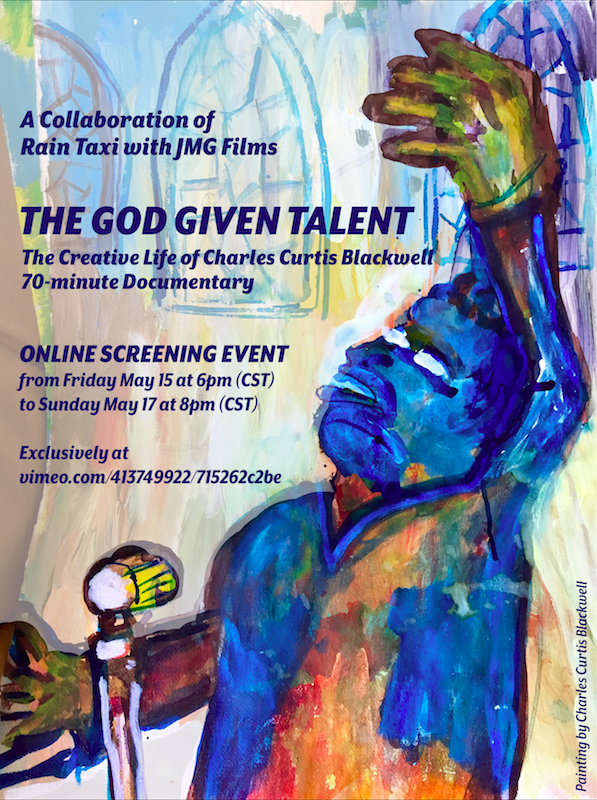



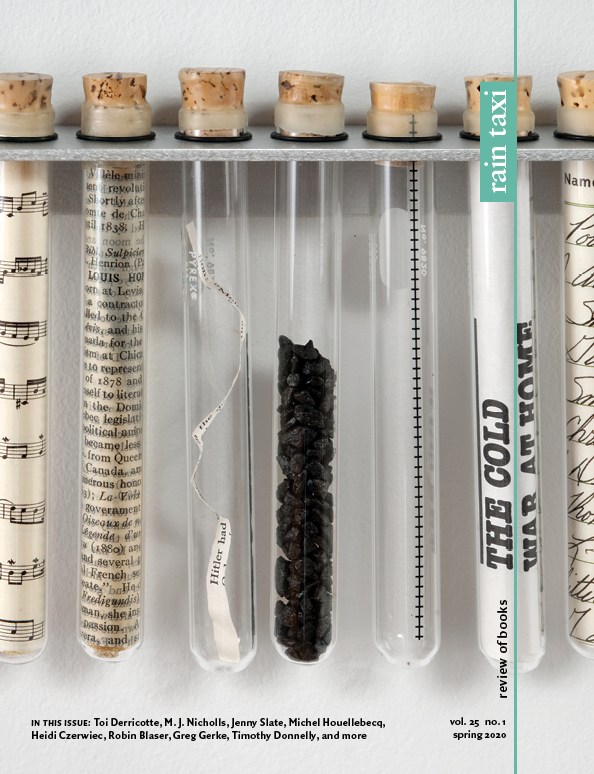
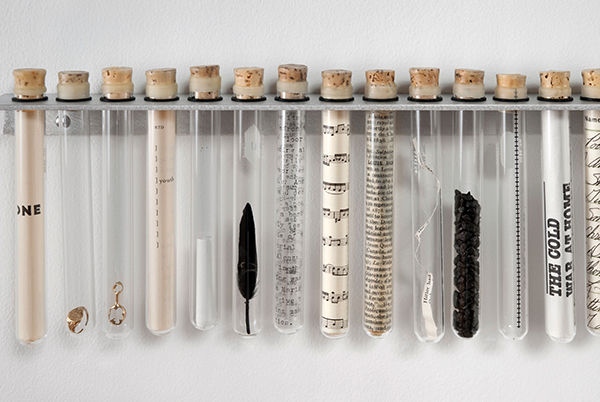
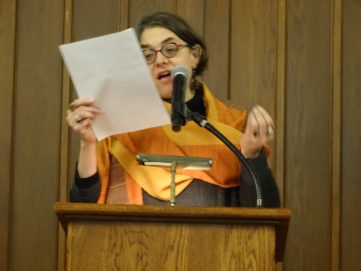
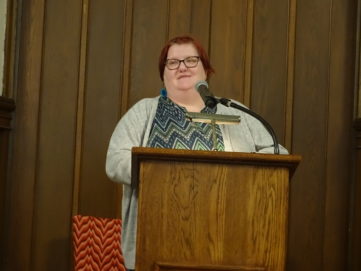
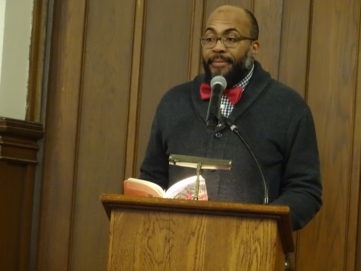
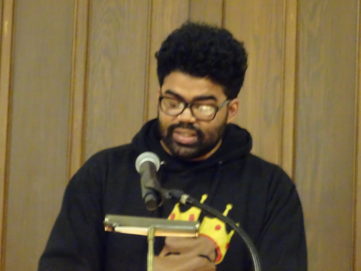
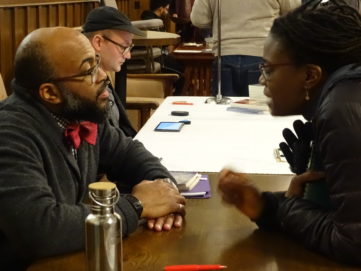
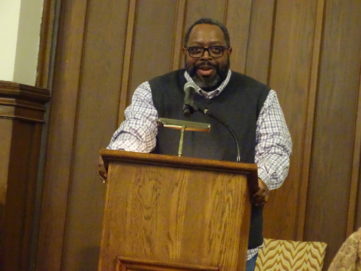
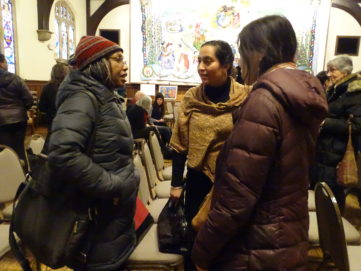
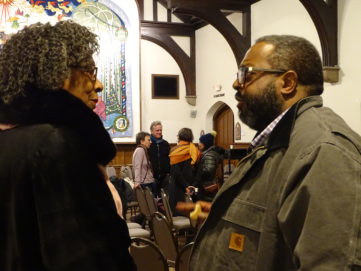
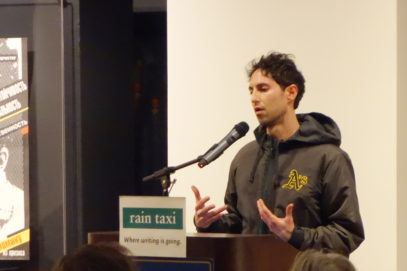
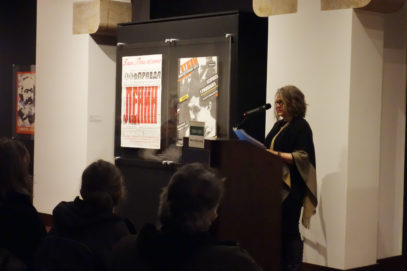
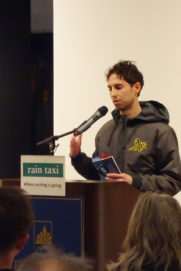
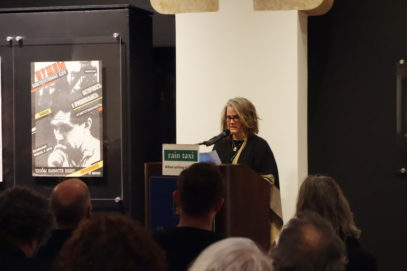
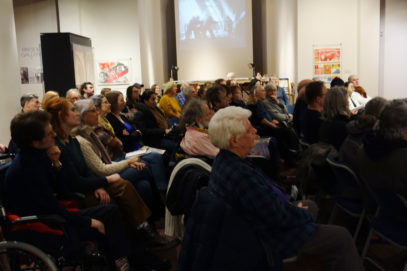
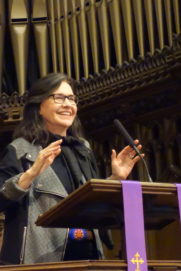
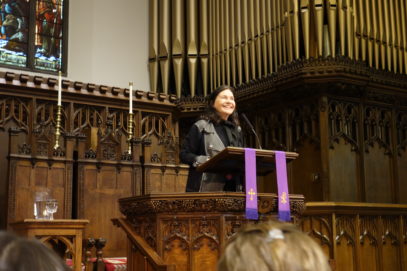
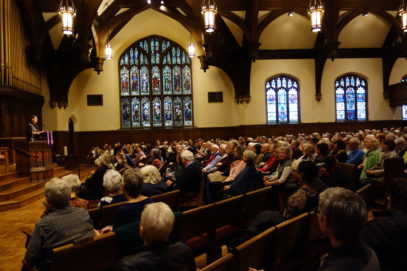
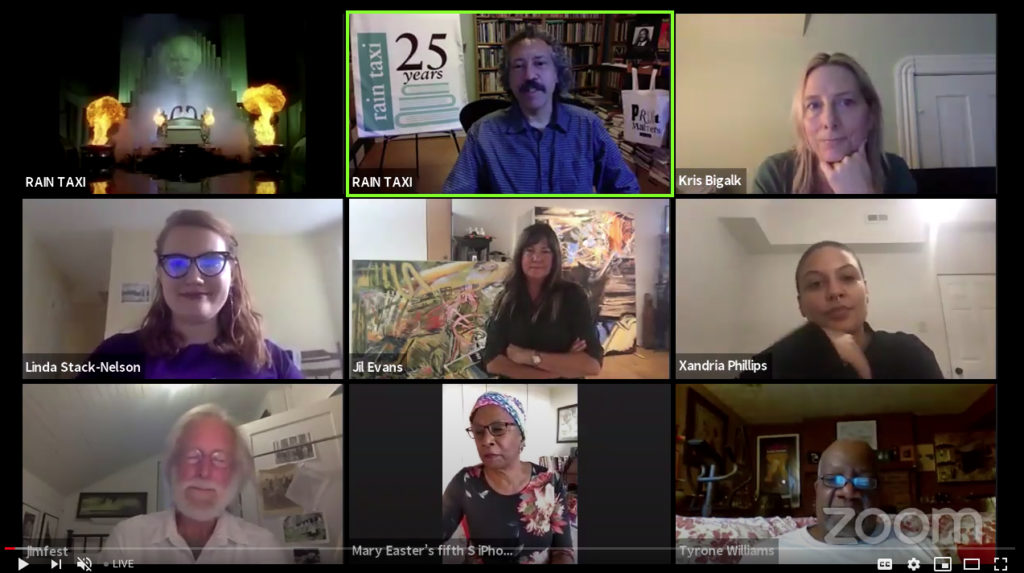
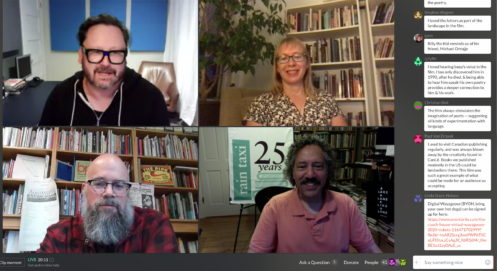


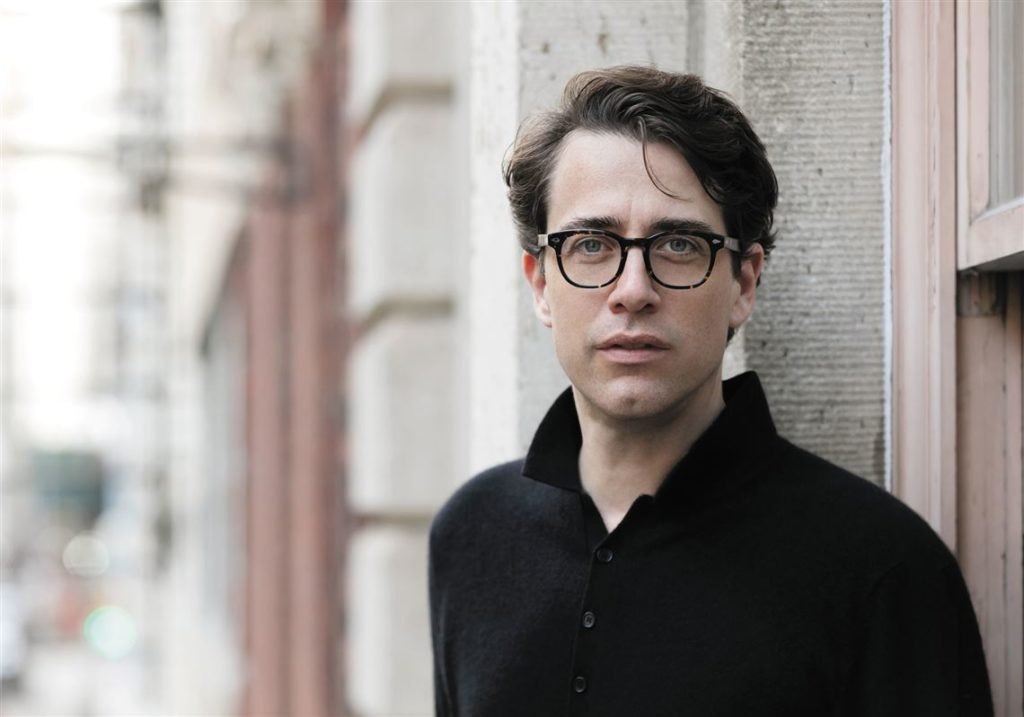

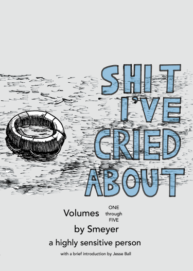 Volumes One Through Five
Volumes One Through Five interviewed by bart plantenga
interviewed by bart plantenga 
